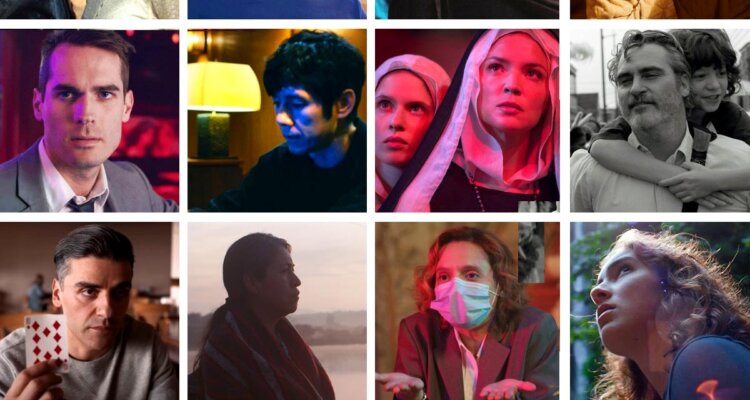“This Is Not A Burial, It’s A Resurrection”
Sometimes, it takes an acclaimed but obscure festival title a bit of time to find traction. We first saw “This Is Not A Burial, It’s A Resurrection,” back in Sundance 2020—just before the first big pandemic lockdown. In the months since director Lemohang Jeremiah Mosese’s close to indescribably powerful psalm on unknowable sorrow has only grown more pertinent. Featuring a tremendous career end performance from actress Mary Twala Mhlongo (who passed away last year), playing an elderly mother who has outlived her entire family, being informed that her son was killed in a mining accident, and—thanks to a dam being built on her village’s land—she will not be laid to rest beside him when she passes. Shot in stunning 4:3 and framed like a tidal wave tragedy with a nearly biblical catharsis, ‘This Is Not A Burial’ is an absolute must-watch work of world cinema, Mosese using every cinematic tool at his disposal to capture and create an ethnically specific, realist tall tale of one woman’s unwavering devotion to honor the spirit of ancestry. [Our review]
“Bergman Island”
Though the discourse surrounding Mia Hansen-Løve’s self-reflexive “auto-fiction” inevitably circles back to her relationship with former partner/fellow filmmaker, Olivier Assayas (see also: “Non-Fiction”), “Bergman Island” is deceptively complex beneath its meta-textual, creative elope set-up. Following a director struggling to decide whether her newest script idea—based on her first love/heartbreak—merits making a film or not (an argument certain critics have made about the movie itself, which feels far more a deliberate feature than it is a bug). Vicky Krieps is absolutely marvelous as the director’s own surrogate (Greta Gerwig was previously cast in the role before dropping out to direct “Little Women,” fittingly enough) and Tim Roth brings a temperate, fragile arrogance to the part of her filmmaking partner. There’s a wonderful moment in a bookstore, Krieps character framed trying on a pair of sunglasses, giving her a Godard/Fellini vibe; cut to a reverse shot of a long-haired film-bro student eyeing her in the mirror, Krieps image now echoing back like a pretentious author photo, framed out of focus. A meta-slice of filmmaking authorship reflecting on the trap of self-made, creative frustration, “Bergman Island” also happens to be devilishly hilarious, full of filmmaking gags mocking the blind worship of directors on the level of the Swedish auteur— such as the Bergman Safari Tour Bus, complete with an app spotlighting key movie locations. [Our review]
“The World To Come”
“Every morning I wake up and I think that I never want to be far from you.” Capturing the sudden rush of a sorrowful memory onslaught—like flipping back through hand-written diary entries, cursive springing to life when recalled—Mona Fastvold’s “The World to Come” (based on Jim Shepard’s excellent short story) sits somewhere in between “Portrait of a Lady on Fire” and “The Power of the Dog” (it would make an outstanding, oppressed, queer history double feature with either). Starring Katherine Waterston and Vanessa Kirby as Abigail and Tallie, a pair of 19th-century pioneer women—their affair forgotten by time immemorial—who fall desperately in love to the chagrin of their husbands. The words, images, and score, to Fastvold’s film, are so intimately infectious—echoing the blossoming state of a newfound smile orbiting one’s world—you’ll want to pause and scribble down every word, every syllable, to take in every loving frame captured on its scrumptious 4:3 canvas. A tad Terrence Malick and a bit Gillian Armstrong, “The World to Come” breathes invisibly like a literary aphrodisiac, the romance beating at its heart’s center somehow manifesting an answer to the query: “Why is ink like fire?” [Our review]
“Memoria”
Revered slow cinema maestro Apichatpong Weerasethakul (colloquially referred to by his admirers as “Joe”) has, almost inarguably, never made a film one can describe as “accessible.” Though his latest work, “Memoria”—an unequivocal masterpiece that could be made by no one else living on this Earth—is certainly still unconventionally obtuse in its singular aesthetic, for the first time, it features something resembling a plot for general audiences to latch onto. A botanist (Tilda Swinton) visiting her sister in Columbia starts suddenly hearing a metallic booming sound—like a boulder rolling into crashing waves—yet everyone else around her seems deaf to its noise. Creatively honing what makes his voice so singularly special, without sacrificing the confluence of expressive forces, Joe wields his forensic spiritualism through the screen and sensory, with a coat of style so confident it plays like artistic sleepwalking—as if painting a glass canvas that never cracks. The movie’s denouement is so petrifying on a soulful level, it makes the heart quake. Don’t let anyone ruin anything else about the movie. Go full Siskel and plug your earholes, if you overhear friends talking. Walk into “Memoria” embracing the unknown and give yourself over to its transcendental echo. [Our review]
“The Dry”
There was a time when Hollywood thought Eric Bana was the next big thing (see, “Hulk,” “Munich,” “Star Trek,”) and well, that didn’t quite pan out, despite his obvious talents. Bana then took a four-year hiatus (2017’s “The Forgiven” was his last film at the time) and then returned in 2021 with the understated, slow-burn Aussie thriller “The Dry” that once again showed he had the goods. Directed by Robert Connolly, this mystery drama film stars Bana as a cop who returns to his drought-stricken hometown to attend a tragic funeral (the murder-suicide of one of his childhood friends who killed his family). But his return opens a decades-old wound – the unsolved death of a teenage girl and the intrigue starts to spill all over. Our review from Jason Bailey said Bana’s “potent mixture of brusque physicality and barely bottled emotion,” makes “The Dry” worth re-discovering. – Rodrigo Perez

